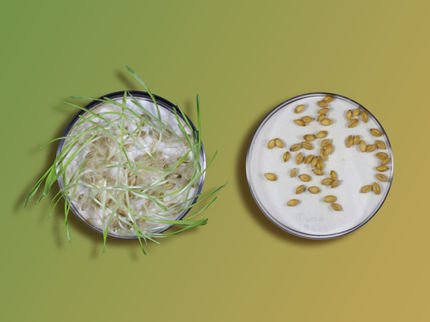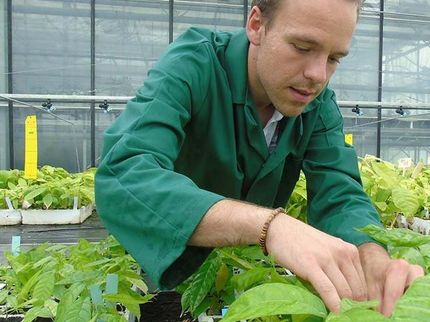Living libraries could save our food
University of Hawaiʻi scientists are among a team of researchers who have discovered an innovative way to help adapt food crops around the world to Earth’s rapidly changing climate.

Sorghum, an essential global crop for hundreds of products from bread to biofuel.
University of Hawaii
A new study published in Nature Climate Change reveals how plant genebanks, home to millions of genetically diverse plants around the world, can help speed up the process of breeding crops better suited for climate change.
“Climate driven pressures on food crops touch every country on our planet and this technique holds promise for making more use of our global genebanks,” said co-author Michael Kantar of the UH Mānoa College of Tropical Agriculture and Human Resilience (CTAHR).
Living libraries that fight climate change
According to Kantar, plant genebanks are essential for protecting the genetic diversity of food crops. These “living libraries” store seeds and other genetic material, providing a vital resource for plant breeders working to develop new crop varieties that have a range of traits from drought resistance to disease tolerance.
The researchers used sorghum, a grain grown for food, fuel, and livestock feed, to test a new method called environmental genomic selection. It combines DNA data with climate information to predict which plants are best suited for future conditions.
“It can be applied to any crop that has the right data, these include sorghum, barley, cannabis, pepper and dozens of other crops,” said Kantar.
The approach also saves time. Instead of testing thousands of plants in the field, scientists use a smaller, diverse “mini-core” group to forecast how crops will perform in different environments. This helps breeders quickly select the best parents for new, climate-resilient varieties.
“This method will help us keep pace with the hotter temperatures and increased risk of flooding from Earth’s changing climate and help develop new varieties to ensure food security,” Kantar said.
Researchers discovered that nations with high sorghum use may need genetic resources from other countries to effectively adapt to climate change stressing the value of global teamwork in securing the world’s food supply.
Original publication
Quinn Campbell, Nora Castañeda-Álvarez, Ryan Domingo, Eric Bishop-von Wettberg, Bryan Runck, Hervé Nandkangré, Anna Halpin-McCormick, Nathan Fumia, Jeffrey Neyhart, Benjamin Kilian, Peterson Wambugu, Desterio Nyamongo, Sariel Hübner, Sidney Sitar, Addie Thompson, Loren Rieseberg, Michael A. Gore, Michael B. Kantar; "Prioritizing parents from global genebanks to breed climate-resilient crops"; Nature Climate Change, 2025-5-29
Original publication
Quinn Campbell, Nora Castañeda-Álvarez, Ryan Domingo, Eric Bishop-von Wettberg, Bryan Runck, Hervé Nandkangré, Anna Halpin-McCormick, Nathan Fumia, Jeffrey Neyhart, Benjamin Kilian, Peterson Wambugu, Desterio Nyamongo, Sariel Hübner, Sidney Sitar, Addie Thompson, Loren Rieseberg, Michael A. Gore, Michael B. Kantar; "Prioritizing parents from global genebanks to breed climate-resilient crops"; Nature Climate Change, 2025-5-29
Topics
Organizations
Other news from the department science

Get the food & beverage industry in your inbox
By submitting this form you agree that LUMITOS AG will send you the newsletter(s) selected above by email. Your data will not be passed on to third parties. Your data will be stored and processed in accordance with our data protection regulations. LUMITOS may contact you by email for the purpose of advertising or market and opinion surveys. You can revoke your consent at any time without giving reasons to LUMITOS AG, Ernst-Augustin-Str. 2, 12489 Berlin, Germany or by e-mail at revoke@lumitos.com with effect for the future. In addition, each email contains a link to unsubscribe from the corresponding newsletter.































































